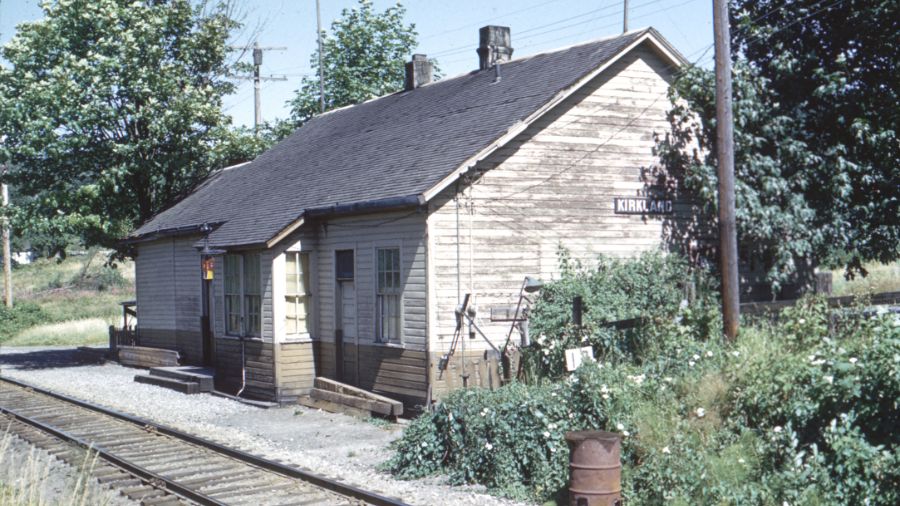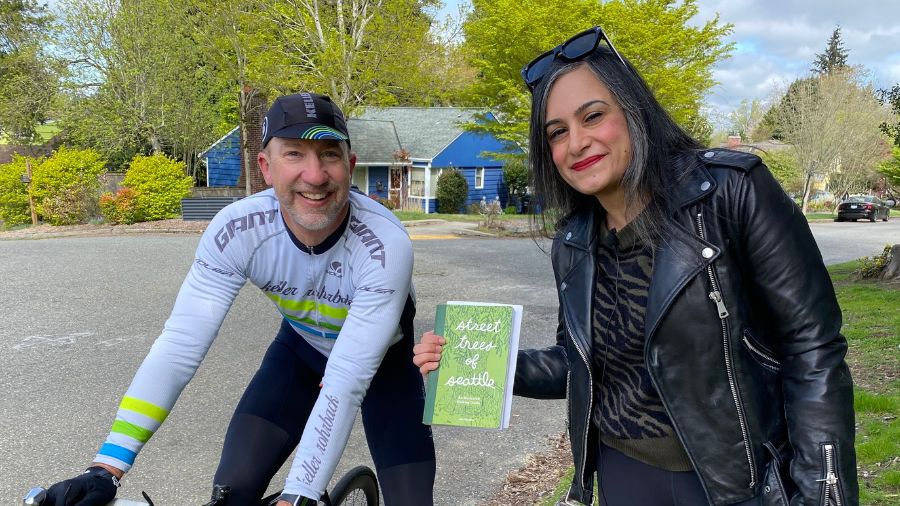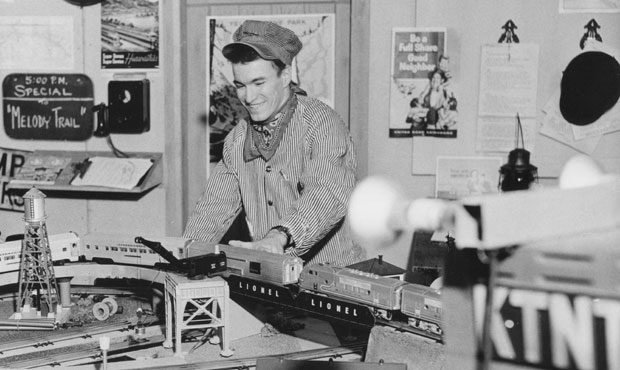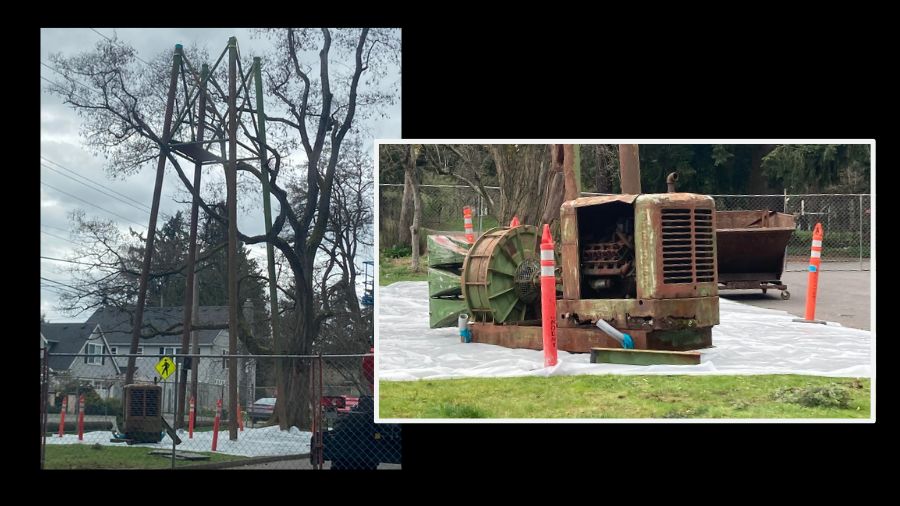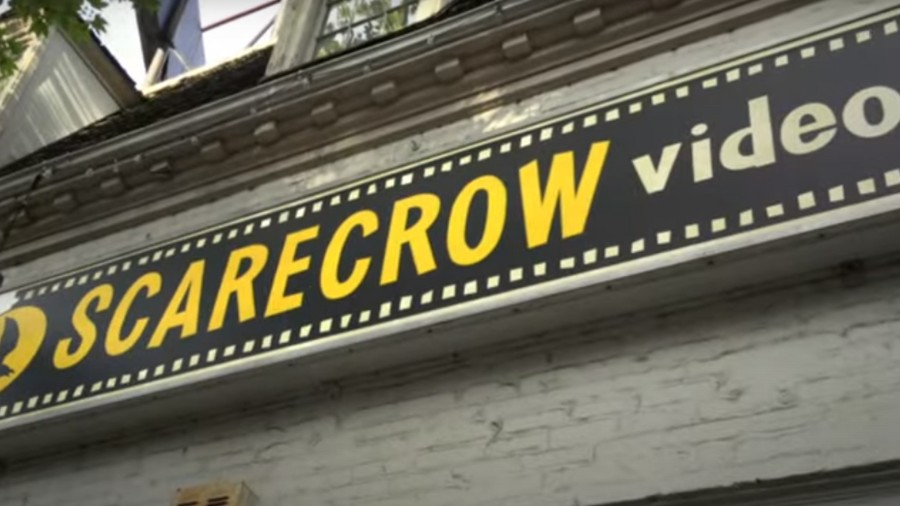New ‘Indigenous Voices’ podcast connects Northwest’s people, land, and history
Mar 30, 2022, 10:29 AM

Indigenous Voices is a new podcast examining Northwest history such as the 1854 Treaty of Medicine Creek and the 1855-1856 Treaty War through discussion among tribal members. (Metro Parks Tacoma)
(Metro Parks Tacoma)
A new podcast from Fort Nisqually Living History Museum is all about Northwest stories told by Indigenous voices. Like so many thing silver linings of the past few years, it came about partly because of pandemic-inspired online programming created by museum staffer Elizabeth Rudrud.
“We were really looking to find ways to continue to engage our audiences, to make sure we’re providing value for our community,” Rudrud told KIRO Newsradio. “And it really was an opportunity to just stop and re-evaluate [and] pivot.”
“Fort Nisqually, being established here in 1833 in the South Sound, Native American communities were integral to all operations, working and living and purchasing and trading, and just thriving in the Puget Sound when Hudson’s Bay Company came here, so it’s a very important part of the story,” Rudrud said.
“I reached out to Charlotte Basch at Puyallup Tribe and had a conversation with her on where can we begin on making sure the story is incorporated in a meaningful way into the museum’s interpretation [and] museum operations,” Rudrud continued. “And she and I identified that to do so really needs intentional effort … it needs to be something that’s not an afterthought.”
“If there was an opportunity to really focus in and create this platform for tribal voices to tell the history of the Puget Sound that would be the way to go. And she connected us all of us together.”
The new monthly podcast is called “Indigenous Voices” and it debuted in February via most podcast platforms. The event that inspired it – a result of the conversation between Elizabeth Rudrud and Charlotte Basch – was produced a year ago. Panelists included members of the Muckleshoot, Nisqually, Puyallup, Steilacoom and Squaxin Island Tribes.
That March 2021 online panel discussion was moderated by well-known author and historian Jennifer Ott. Topic for the discussion was what’s called the “1855-1856 Treaty War” – which included death and destruction in Seattle and the White River Valley, and which was precipitated by a U.S. government document: the Treaty of Medicine Creek from December 26, 1854.
KIRO Newsradio has presented elements of this history before – such as the actions and missteps of Territorial Governor Isaac Stevens to enforce multiple treaties and remove Indigenous people to reservations to make way for settlers, and the criminal prosecution and execution of Indigenous people, including Leschi, who were clearly Treaty War combatants and not criminals. Those earlier radio and web stories have often included the voices of Indigenous people; failure to do so would be inexcusable, and the depth, breadth and accuracy of the stories would suffer.
However, the panel at Point Defiance last March and the new podcast are qualitatively different and better by several orders of magnitude: both feature tribal people talking at length about that brutal time in Northwest history and how it has been understood within multiple tribal communities.
The 1850s were a formative era for the place in which we all now live, and decisions made and official policies first enforced then affect each of us every day. And, though it also really wasn’t that long ago, it is an era which is still often mischaracterized and misunderstood, if not completely overlooked.
“There have been a number of narratives,” Warren KingGeorge of the Muckleshoot Tribe told KIRO Newsradio earlier this month. KingGeorge took part in the panel last year and was the first member of the group to suggest creating a podcast.
“There have been a number of explanations and number of versions of this story of the Medicine Creek Treaty being told,” KingGeorge continued. “But in my opinion, I think this would have been the first time that a consortium of representatives and descendants from the Medicine Creek Treaty came together and had a conversation that involved the history of our people and of this state of Washington.”
Danny Marshall, chair of the Steilacoom Tribe, is also a panelist and podcast participant. He says the 168-year-old treaty is a “forever document” which is still in effect, and which still has a profound impact on this area’s people and culture.
“You can go online and pull up a copy of the Medicine Creek Treaty, signed in 1854, and see what it says in it,” Marshall said. “That’s eye-opening for many people, just listing the tribes that are on there, [and] many can’t be located today.”
“And then also the promises that were made within the treaty, and realizing that many of those promises were never kept,” Marshall continued. “So, why is it important? Because it’s a forever document. It’s not one of those things that was signed between the tribal people and the government to be just a mode of operation for the day, but it was to guide us into the future.”
“There have been many different ways the government has guided this into the future and kind of taken new directions. With always one potential goal which was assimilation and enculturation of the Indian people into the communities that they were planning to develop.”
“It really didn’t go as planned,” Marshall continued. “The whole genesis of the history of Washington state has been things didn’t go as the president initially intended. Franklin Pierce sent [Isaac] Stevens out here to negotiate these treaties with one purpose in mind: set up one reservation for all the Indian people to be contained, and then develop opportunities for American [non-Native] communities to be settled here in the area.”
The people and voices taking part in the Fort Nisqually project effectively take what can seem to some like a distant and abstract history and make it concrete, real, and, especially, human scaled. Listening to the podcast, what once may have been a few pages in a state-approved curriculum from the 1970s becomes an inspiring story about a community of multiple generations defending their homeland. In this regard, the 1850s in the lower reaches of what the Europeans first called Puget Sound or the White River Valley have emotional parallels to what’s taking place in Ukraine in 2022.
And because the subject is war and the social and political conditions that led to deadly encounters, these are not exactly lightweight discussions.
Warren KingGeorge says the conversations for the panels and the podcast episodes have sometimes created moments that were difficult, uncomfortable, and even powerful.
“We can try to imagine what some of the emotions that we’re going through our ancestors’ minds at that time and in their hearts, the perspective of someone who’s willing to lay down their life and fight for what they believe in to their death,” KingGeorge said. “That we don’t want to move our people here. We don’t want to give up these resources there. We want to retain our homeland, the place that we feel most comfortable.”
“We’re willing to fight for it to our last breath,” KingGeorge continued. “And sometimes that can get a little emotional, when you’re trying to explain to somebody why it is Native Americans feel the way they do about their homelands [and] about their traditional territory.”
On a personal note, as a journalist and historian, one thing I often feel when I talk to an Indigenous person with deep roots here is that, in spite of my best intentions, I remain ignorant about Indigenous culture and history. Though I have read much of the material about this history (most of it written by white people, of course) and have traveled extensively around the region and paid close attention to the stories, I’m always afraid I’m going to say something clumsy or unintentionally offensive.
Danny Marshall says those feelings are not uncommon. But, he says the Fort Nisqually panel discussions and the new podcast might help address this phenomenon by giving people an opportunity to become more knowledgeable.
“[This projects] makes the public more comfortable with what they don’t know and gives them an opportunity to try and reach out and get more information,” Marshall said. “[Or] at least feel comfortable asking the questions when they come to our museum, so they’re not saying, ‘I’m the dumb person really doesn’t know anything. I’m afraid to ask something so I don’t want to offend anybody’ but [instead], ‘Here’s my question.’”
“And then we have these great conversations,” Marshall said, pointing to noticeable changes he’s seen in Steilacoom in just the past year. “We’ve experienced that already – people will come in and say ‘Yeah, we saw the YouTube video that was podcast on the treaty panel, and we wanted to come in and visit and talk more about it.’”
And what about something as simple – and complex – as what words are used to name or describe Northwest residents with roots going back thousands of years? It’s easy for anyone to stumble and get confused by the differences – or appropriateness – of knowing when to “Indian,” “American Indian,” “Native,” “Native American” or “Indigenous.”
Marshall suggests a simple approach.
“If you really want to get personal on this, we just identify ourselves as people,” Marshall said. “And sometimes I’ll identify us as ‘people,’ and the other people as ‘the new people.’”
“It’s easy, because everybody is people,” he continued. “And they’re people here in the area. And you love it because you’ve spent your life here … [and] we’ve got stories that have been passed down generation after generation within our communities that that tie us even stronger to the land. But there’s space for [both].”
With projects like the “Indigenous Voices” podcast and the other programs at Fort Nisqually, one can’t help but feel a sense of hope for even more understanding.
Marshall agrees, and says it’s clear that all of us who live here now truly love the land, regardless of how long our families have been here. And while Indigenous people have a longer and deeper connection, this shared love of the land can be the foundation, Marshall believes, of a lot of understanding and progress.
“This is a beautiful place with so much that makes us connected to the area that we can all love and share,” Marshall said. “We haven’t shared well over time, but we can.”
In addition the podcast and panel discussions, Elizabeth Rudrud says they are also working on creating an accompanying curriculum which will ultimately be made available to educators around the region.
You can hear Feliks every Wednesday and Friday morning on Seattle’s Morning News, read more from him here, and subscribe to The Resident Historian Podcast here. If you have a story idea or a question about Northwest history, please email Feliks here.


